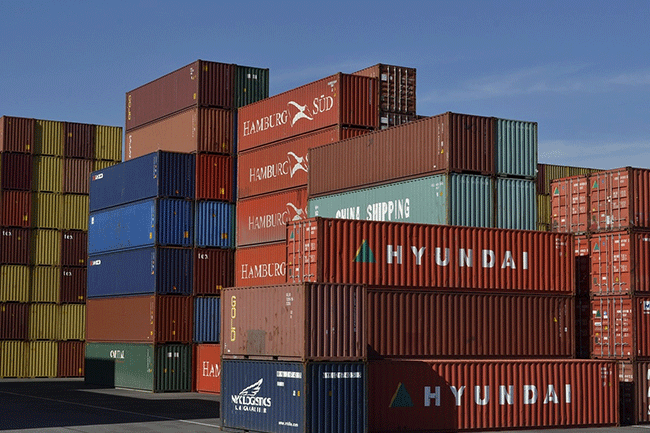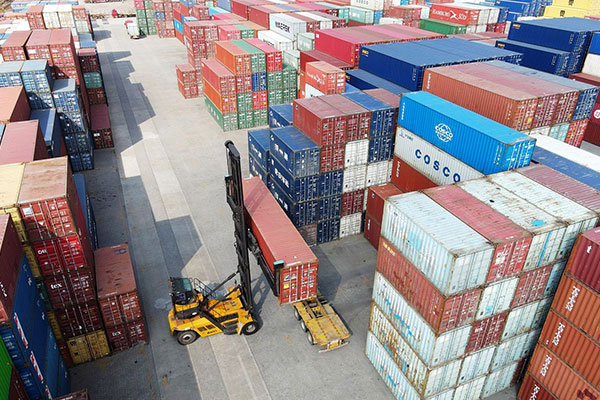- Shanghai Zhongshen International Trading Co., Ltd. – Your reliable partner with 20 years of import/export agency service expertise.

I. Analysis of the Current Status and Policy Environment of China-Japan Chocolate Trade
In recent years, with the upgrading of Chinese consumption and the entry into force of the RCEP agreement, Japanese chocolate, known for its "artisan craftsmanship" and "high-quality ingredients," has seen an average annual import growth of 12% in China (2023 customs data). However, it should be noted that China-Japan food trade is subject to bilateral regulations: Japan enforces the "Food Sanitation Act" (JAS) and the "Customs Tariff Law," requiring exported foods to meet its production standards; China, on the other hand, relies on the "Administrative Regulations on Registration of Overseas Manufacturers of Imported Food" (GACC Decree No. 248), mandating that producers of chocolate exported to China complete their registration in China (FSMA), and also comply with national standards such as GB 9678.2-2014 for "Chocolate, Cocoa Butter Replacer Chocolate and Their Products." In 2023, cases of return shipments due to failure to complete overseas manufacturer registration accounted for 23% of problematic Japanese food import cases, highlighting the importance of front-loaded compliance.
II.Import Agent ServicesCore Competencies: Professional Control of Documents and Logistics
(I) Document Handling: Full-Chain Review to Avoid Customs Clearance Risks
Documents are the "lifeline" of import customs clearance. Importing Japanese chocolate requires the submission of 12 types of core documents. Our agency, with 20 years of experience, has established a "3+2" review mechanism (3 internal reviews + 2 pre-reviews by customs) to ensure "document-to-document and document-to-goods consistency." Key documents include:
- Origin Certificate(FORM E): As the basis for RCEP tariff preferences, it is necessary to check the exporter's name, HS code (1806.3200), and the agreement tariff rate (the 2024 MFN tariff rate is 8%, which can be reduced to 6% under RCEP);
- 衛(wèi)生證書(Certificate of Health): Issued by Japan's Ministry of Agriculture, Forestry and Fisheries (MAFF) or an authorized body, with a focus on reviewing the logic of "production date - shelf life" and compliance of additives with GB 2760 standard;
- Certificate of Analysis (COA): Must list the cocoa butter content (≥30% to be classified as "chocolate") and allergen information (such as nuts, dairy products) to avoid being classified as "cocoa butter replacer products" by customs due to inconsistent labeling;
- Bill of Lading (B/L):Maritime transportIt is necessary to choose a shipping company with cold chain qualifications (such as Maersk Reefer),Air freightand prioritize the use of all-cargo aircraft (such as JAL CARGO) to ensure that the "shipment date - arrival time" matches the temperature control requirements.
In a client case in 2022, the "production batch number" on the health certificate provided by the Japanese side did not match the actual goods. Our agency immediately coordinated with the Japanese official institution to reissue a corrected version, avoiding 15 days of demurrage fees (about 50,000 yuan) and the risk of cargo damage.
(II) Logistics Management: Full-Chain Cold Chain Monitoring to Guarantee Quality
Chocolate is a heat-sensitive product (optimal storage and transport temperature 15-18℃, humidity ≤60%), so logistics solutions need to be customized:
- Selection of transportation methods: For small batches (≤2 tons), air freight is recommended (Tokyo Narita - Shanghai Pudong, 48-hour delivery), using a combination of "dry ice + insulated boxes"; for large quantities (≥10 tons), refrigerated sea containers (40-foot HC Reefer) are preferred, requiring the shipping company to provide "temperature recorder data" (TIR);
- Risk Control: Purchase "Refrigerated Cargo Insurance" (an additional clause in the CIC), covering cargo damage caused by compressor failure or power interruption; initiate "bill of exchange pre-declaration" 3 days before arrival, and simultaneously transmit "manifest information" to customs, shortening the clearance time to within 48 hours (regular non-cold chain goods require 72 hours);
- Destination port operation: Prioritize the use of cold chain warehouses in the Shanghai Waigaoqiao Free Trade Zone (which have CIQ-designated supervision site qualifications), ensuring entry into the warehouse within 2 hours of unloading to avoid "last mile" temperature fluctuations.
III. Expansion of Business with Russia: VTBConvert foreign exchange into RMBAdvantage賦能多元貿(mào)易
For clients involved in tripartite trade between China, Russia, and Japan (e.g., Japanese chocolate imported by our agency and then resold to Russia), our agency, relying on its long-term cooperation with Russia'sforeign tradeVTB Bank, offers a "dual-currency settlement + fast crediting" service:
- Settlement stability: In the context of SWIFT restrictions, direct settlement in Rubles and Renminbi is achieved through VTB's "SPFS system" (the Russian version of the financial information transmission system), avoiding the risks of USD settlement;
- Professional support: VTB's settlement exchange rate is 0.3-0.5 basis points better than the market average, and there is no handling fee (regular banks charge 0.1%);
- Time - limit guarantee: T+1 crediting (traditional agents require T+3), helping clients accelerate capital turnover. In 2023, a client completed a 2 million Ruble settlement through this channel, saving 28,000 yuan in financial costs compared to the original plan.
IV. Full Import Process Analysis: 10-Step Standardized Service Covering All Scenarios
Our agency breaks down the import of Japanese chocolate into 10 key steps, with customized services embedded in each step:
- Client Consultation: Through a "needs questionnaire," clarify the cargo volume (tons/container), brand (e.g., Royce', Shiroi Koibito), and sales channels (supermarkets/Cross-border E-commerce), to match with either a "general trade" or "bonded warehousing" solution;
- Negotiation and Contract Signing: Review the "quality clauses" (e.g., cocoa butter content ≥35%) and "dispute resolution" (stipulating SGS third-party inspection) in the contract to avoid the risk of "goods not matching the description";
- Orders & Payment: Based on the client's credit rating, recommend T/T (30% advance payment) or L/C (at sight?L/C?), and coordinate with a Japanese bank (such as Mitsubishi UFJ) to confirm the authenticity of the documents;
- Production supervision: Dispatch QC to conduct a factory inspection in Japan, verifying raw material traceability (e.g., Ghanaian cocoa beans), production environment (ISO 22000 certification), and retain "production process videos" as supplementary materials for customs clearance;
- Logistics Management: Simultaneously monitor the "refrigerated container temperature curve" (data automatically uploaded every 2 hours), and trigger an "emergency plan" (e.g., dispatching a backup refrigeration unit from a nearby location) in case of abnormalities;
- Customs Compliance: Pre-classify the HS code (1806.3200), calculate the comprehensive tax rate (tariff 8% + VAT 13%), and submit the "registration of consignee for imported food" and "Chinese label registration";
- Delivery and Distribution: According to the client's needs, provide "door-to-door" delivery (e.g., to Beijing, Guangzhou) or "bonded distribution" (releasing goods in batches to reduce financial pressure);
- Quality Assurance: Assist the client in completing customs random inspection testing (e.g., for microorganisms, heavy metals). If non-compliant, cooperate in initiating the "return" or "destruction" process (must be completed within 45 days);
- Summary Feedback: Provide a "Full Import Process Report," including logistics tracking, detailed tax and fee breakdown, and loss analysis (normal loss ≤0.5%), to help the client optimize the next import plan;
- Settle payment: Complete the "three-in-one" reconciliation of invoices, goods, and payments through a "comprehensive foreign trade service platform" to ensure tax compliance.
V. Certification Advisory: Compliance Preparations for Clients to Complete Themselves
It must be specified: Our agency does not provide product certification services, but based on experience, we advise on the following mandatory certifications (recommended to start 3-6 months in advance):
- For import into China: Overseas manufacturer registration (FSMA): The Japanese chocolate factory needs to be approved by the General Administration of Customs (registration status can be checked on the "Internet + Customs" platform);
- For export from Japan: JAS certification: Some high-end brands (such as Godiva's Japanese factory) need to provide JAS "chocolate products" certification to prove compliance with Japanese Agricultural Standards;
- Special requirements: HALAL certification: If targeting the Muslim market, Halal certification issued by JAKIM of Malaysia or MUI of Indonesia is required.
It is recommended that clients entrust professional certification bodies (such as SGS, Intertek) for handling. Our company can assist in reviewing the consistency of certification documents with customs clearance requirements.
VI. Common Risks and Responses: A Guide to Avoiding Pitfalls from 20 Years of Experience
- Discrepancy between documents: If the "production date" on the health certificate is later than the bill of lading, it is necessary to request the Japanese side to backdate it in advance (requires endorsement from an official institution);
- Cold chain failure: Request "original temperature recorder data" from the shipping company, and check if the "temperature of the last 3 hours" exceeds the limit upon arrival;
- lack of certification: Check the registration status of the overseas manufacturer through the "single window" before customs clearance. If not registered, immediately notify the client to suspend shipment;
- non - compliant labels: The Chinese label must include "country of origin," "domestic distributor," and "ingredient list," and avoid using absolute terms like "best" or "number one" (in violation of the "Advertising Law").
Conclusion: The core of Japanese chocolate import agency is "professionalism + attention to detail." With 20 years of experience, our agency builds barriers in documentation, logistics, and compliance, helping enterprises efficiently open the golden channel from "high-quality Japanese chocolate to the Chinese consumer market."
Related recommendations
- 揭秘紅酒代理進口:從選品到通關(guān)的全流程指南
- A Comprehensive Analysis of Australian Cookie Import Agents: A Professional Operation Guide Focusing on Two Core Aspects—Documentation and Logistics
- How can industrial equipment exporters overcome the challenge of choosing a foreign trade agent?
- A Complete Guide to Importing Cakes from Japan: Professional Foreign Trade Agency Practices from Documentation to Logistics
- Guidelines for the Full Process of Declaring Swiss Chocolate Imports: A Professional Analysis of Documentation, Logistics, and Trade Compliance Requirements
? 2025. All Rights Reserved.










